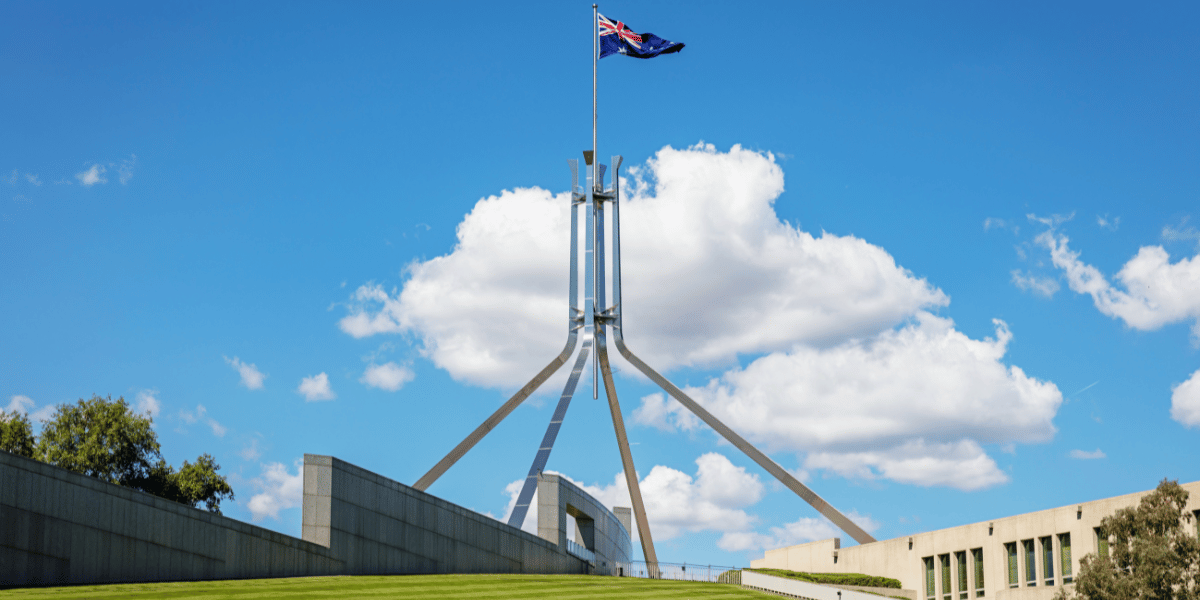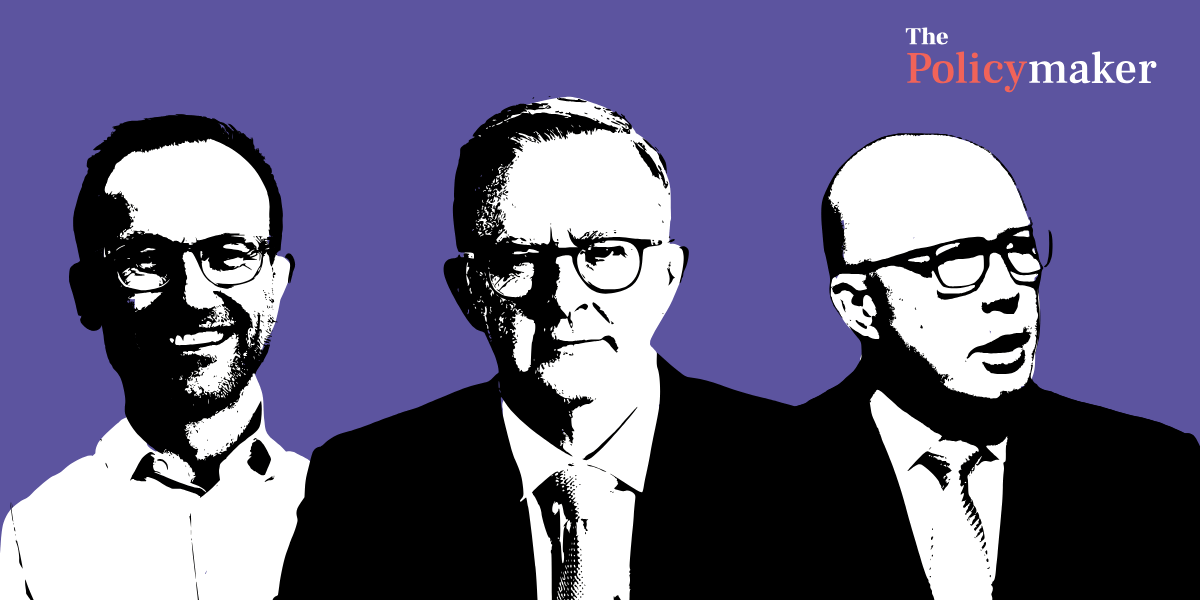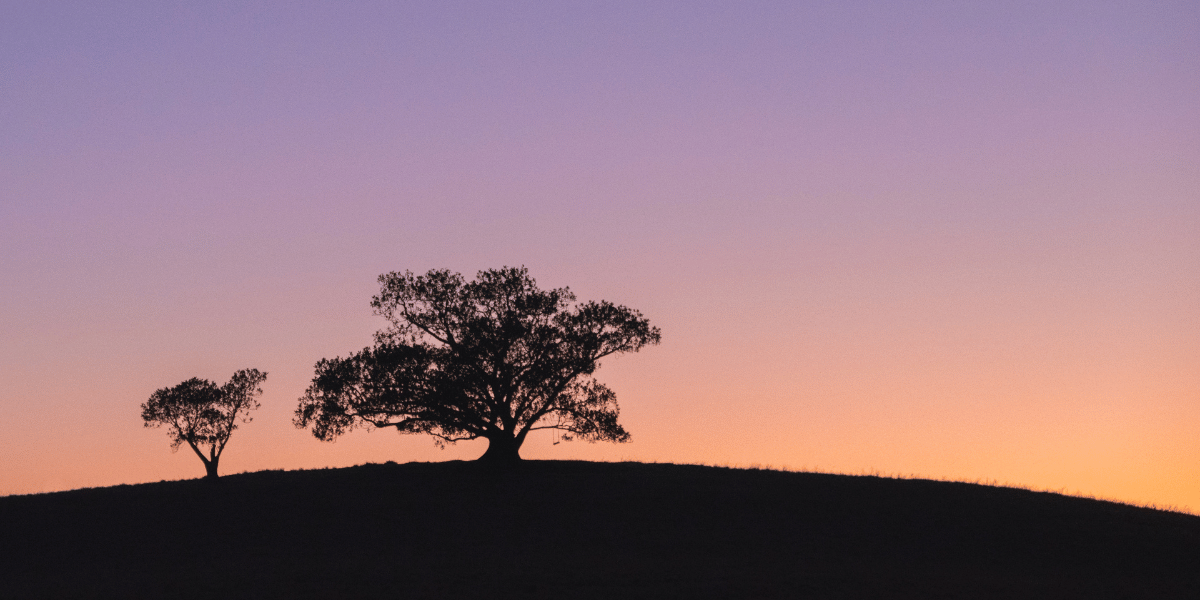Solving our biggest global challenges means putting people and communities at the centre of policymaking.
As political leaders, industry titans and NGO change makers gather in Egypt for another round of global “COP” climate talks, are you breathing a sigh of relief?
While you, me and (almost) everyone else desperately want them to quickly thrash out a plan to save the future of humanity, we know that’s wishful thinking. That’s not because these politicians and climate diplomats aren’t well intentioned; and it’s not because global coordination is not urgently needed. It’s because the number of stakeholders who are part of the conversation in Cairo is far too small given the scale of the climate problem.
Like in Glasgow—and Paris and Copenhagen before it—there are simply way too few people in the room.
If climate change affects everything, then it demands something big. But that’s not a bigger conference. Keeping humanity alive over the coming decades will call on our deepest imagination, our rawest creativity, and the combined wisdom of ancient and modern knowledge. To solve the problem, the goal must be nothing short of a perpetual people power policy machine that can face a constantly changing, dangerous climate with renewed solutions, again and again. To put it mildly, we need a new policy process that seeks to involve all of us, everyday, everywhere, forever.
Putting people into policymaking
Does it sound far fetched?
The truth is that this kind of community-led policy work already exists and it has for a while. Our challenge is not that it can’t be done. Our biggest obstacle is a hegemonic, myopic self-assurance that we don’t need to involve the community in policymaking. Too often, assumptions and policy habits from the past convince us that there is no harm in a quick policy fix that leaves people out of the policy process. But in reality, there are no shortcuts.
The second half of the twentieth century gave birth to a distinctive policymaking logic. As Western welfare states reconstituted after war, the state became the locus of policymaking. Large government departments attracted the best and brightest, drawn from increasingly accessible higher education systems. Universities asserted authority as havens of expertise.
For some, policy consultation involved testing new ideas against ideological grand narratives. Others assumed that scholarly distance from “the people” produced the preconditions for positivist, objective policy. The working assumption became that democratic policy was best when it took on a representative form: a select group making clever policy for the rest of us.
These ideas, however, were slowly contested. A range of disparate and divergent research and social change strategies slowly coalesced, forming the elements of a radically different approach to policymaking. In sociology and anthropology, century-long traditions of “working with” communities began to congeal into radical urban ethnography and participatory action research. Recognition movements, like the civil rights movement, feminism and the disability movement publicly demonstrated that policy justice required the participation of those seeking emancipation, captured in phrases like “the struggle must be engaged by the struggler” (Ella Baker) and “nothing about us without us” (the disability movement).
Design thinking, instigated in the mid-1970s by Scandinavian trade unions seeking a greater say in the products that they made, heralded a deeper truth: that many minds make better things. Healthcare movements led by consumers and patients with lived experience allowed people to not only demand a say in their treatment, but also sought to redefine how the health system saw them. Indigenous research methods have existed for longer than all of these, but gained carriage out of this collective momentum. They have increasingly disrupted assumptions about how we source our knowledge, stressing the interrelationship between people, Country and nature.
In 2018, the science journal Nature somewhat prophetically proclaimed something that many had known for a long time: the best policymaking is done when researchers work in partnership with community participants. Today, this kind of policymaking goes by many different names. Some use the term “co-design” to refer to policy developed in partnership between researchers and community participants. Others prefer “co-production”, which stresses the leadership of community participants. Design thinking has also evolved from its focus on products and technology to include human-centred design, producing policy with people, for people.
While the terminology can be confusing, what is patently clear is that decades of community-led resistance, participatory policy and iterative design principles offer us well-tested tools for policymaking today. While community-led policy won’t work for every problem, its approach is well suited to many of the big challenges of our time.
The past and future of community-led research and policy
At the Sydney Policy Lab, we have pioneered a distinctive approach to community-led research that is inspired by the civic tradition of community organising. Community organising is famously associated with Saul Alinsky, the iconoclastic author of Rules for Radicals. Alinsky founded his first people’s organisation in Chicago during the Great Depression, later creating a network called the Industrial Areas Foundation that, for more than 80 years, has built and sustained more than 98 urban alliances across the world.
At the Lab, we are supporting researchers and community leaders to reclaim this powerful organising tradition. We call our approach the “Relational Method”. We build on community organising’s assumption that good policy is best sourced from the active participation of people, connected through broad-based community networks.
At its core, the Relational Method privileges three principles: relationality, power, and uncertainty. In community organising “relationship precedes action”. Accordingly, good policymaking starts with people, and the possibilities that emerge when people seek greater connection and understanding by taking the time to explore each other’s interests, histories, identities and experiences.
Successful policymaking, however, also requires a sharp understanding of power. Researchers and communities use tools such as “power analysis” to understand what it might take to enact policy solutions given the constraints in the world as it is. Emerging leaders craft policy and find pathways for change, identifying potential allies or strategies to neutralise opponents. They might focus on particular decisionmakers or policy solutions because of their potential to generate domino-like momentum for their cause.
Finally, the principle of uncertainty underscores how policymaking is never ending. As Alinsky once said, the process of making change is like climbing a mountain with no top. When a policy “peak” is reached, the clouds inevitably part, setting change makers yet another policy challenge. Accordingly, researchers and communities need to constantly become stronger while they make change. The goal of policymaking isn’t a search for a perfect policy, it is about cultivating an enduring capacity for people to be policymakers, capable of reshaping their world as it changes.
Getting real about policy change
The Lab is using the Relational Method to respond to the challenge of climate change. Our Real Deal project seeks to generate breakthrough economic, climate and social policy from the ground up. The project was inspired by calls for a “Green New Deal” in the United States, Canada and United Kingdom, but sought to adapt that impulse to Australia’s long history of polarised climate politics and some of the specific tensions on display in the 2019 Federal Election.
Unlike most climate work which tries to meet the urgent and global dimensions of climate change by working at a national or global scale, the Real Deal starts locally. We wanted to see if a community-led policy approach could find common ground on questions of social or economic transition in divided fossil fuel and climate-affected communities. We also knew that genuine “Real Deals” needed to privilege First Nations people, and their needs and knowledge in its formation and expression.
Over two years, the project has built nascent place-based alliances in Gladstone, Queensland (its port serves much of Australia’s coal export market), Geelong, Victoria (home to most of Australia’s oil refineries), and Western Sydney (whose richly diverse population experience some of Australia’s hottest summers).
Conscious of scale and the need to both connect the project’s place-based alliances and engage other civic, industry and government decisionmakers, the Real Deal also cultivated a national coalition of some of Australia’s most influential community groups, ranging from unions, to climate, religious and community groups.
The work is slow. It has taken 18 months for the Real Deal’s local place-based teams to establish a bedrock of trust between unusual allies. For instance, between coal train drivers and religious leaders in Gladstone, or oil refinery unionists and environmentalists in Geelong. Right now, these alliances are preparing to run listening campaigns involving thousands of people. Not only are community participants asked to share their hopes and fears—but they are also invited to be part of creating policy solutions.
Working slowly can feel counterintuitive when up against the urgent pressure of climate change—but it also has distinctive strengths. These on-the-ground networks are already finding that they have the skills to navigate some of the political tensions that have plagued climate policy for years.
State and national climate policies frequently fail locally, stymied by the shortcomings of past transitions and broken policy promises. When today’s government and industry consultants go out to sell the benefits of their latest clean, climate solutions, they are frequently blocked by well-founded scepticism. But this can be different if there is a diverse, well-organised community alliance.
Instead of superficial “tick-a-box” community engagement (with town hall meetings half-full of relative strangers), project proposals are met by an organised community with an agenda. Usually, when a community feels under threat but disorganised, it rallies against change. In contrast, organised communities have the ability to act. Such communities can negotiate win-win solutions that reshape climate proposals and secure tangible community benefits. Community benefits can be anything from local hiring policies, to support for local hospitals or childcare, to agreements about education and training.
Instead of policy change happening to them, organised communities can shape policy. This is also a win for clean energy and infrastructure projects, as a deal with local benefits can reduce risk and resistance to climate projects. Moreover, if industry or political leaders decide to go back on their policy promises, the organised community is there to hold them to account.
The existential threat posed by climate change presents an equally direct challenge to how we make policy. The Real Deal project shows that the art of good policymaking around economic transition will never lie in a single silver-bullet policy deal. Rather, the constant stream of climate pressures means that there will be an endless, creative evolution of local, state, national and global policies requiring the active participation of increasingly large numbers of people.
While we wish the delegates in Cairo well, as pragmatists we know that climate salvation will come from a different master: from the power of all of us, together becoming policymakers forever.
Amanda Tattersall is an Associate Professor with the Sydney Policy Lab and the School of Geosciences at the University of Sydney. She co-founded GetUp.org.au, founded the Sydney Alliance, and hosts the ChangeMakers Podcast, that tells stories about people trying to make the world a better place. She is the instigator and academic lead of the Real Deal project.
Image credit: markrhiggins, Getty Images












